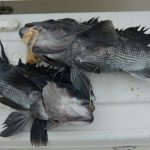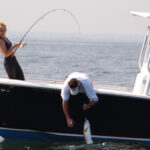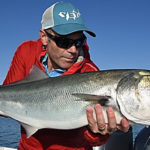At its June 2022 meeting, the Mid-Atlantic Fishery Management Council (MAFMC) adopted the so-called “Percent Change Approach” (PCA) for managing the recreational summer flounder, scup, and black sea bass fisheries; the PCA will also be used to manage the recreational bluefish fishery, once the bluefish stock is no longer subject to its current rebuilding plan. […]
Mid-Atlantic ‘Harvest Control Rule’: One Year Later







